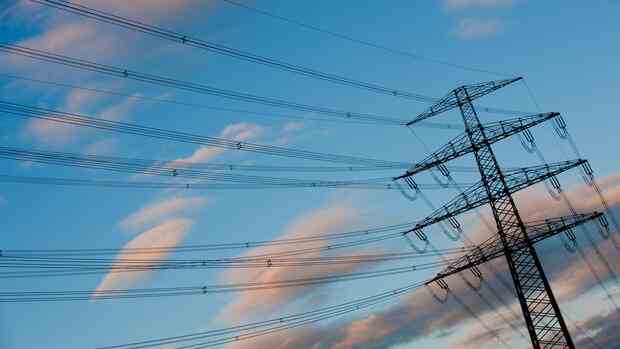The network of the future must be flexible.
(Photo: dpa)
Should the network operator be able to control the charging process of my electric car remotely? Yes. Because that is exactly what is needed in times of more and more systems and massively increasing loads on the power grid.
But no sooner does the Federal Network Agency in Bonn come up with a sensible proposal for controlling the power grid than companies and associations are up in arms again. E-car manufacturer Tesla and heat pump manufacturer Viessmann, among others, have warned very clearly that interventions in the power supply endanger “the acceptance and customer satisfaction for key technologies of the energy transition”.
Sure, if you take that as an opportunity to conjure up horror scenarios – then yes. The flexible control of decentralized systems is only logical, especially with regard to the energy transition.
Millions of solar systems, heat pumps, electric cars and wall boxes are already a challenge for the local grid at one point or another. So far, the operators have been operating completely blind.
When electricity is overproduced, it is closed off a few levels higher for a lot of money, and then there are entire power plants or wind farms. If you used to work on the lower level with small interventions, one or the other wind turbine could also keep turning.
Other countries are further
The flexible control of the individual consumers is necessary to keep the complicated power grid of the future as stable as possible. And could still reduce the necessary network expansion. So far there are no two opinions. The only question is: Who is allowed to throttle the charging process for the e-car at night?
Tesla, Viessmann and Co. want to promote flexible control of individual consumers through financial incentives, i.e. with a market-oriented approach. The Federal Network Agency proposes first of all giving network operators the opportunity to reduce the supply to individual electricity consumers in an emergency.
Today’s network is much more demanding than it used to be. There is no simple either/or when it comes to control, the decentralized energy world is far too complex for that. The network of the future must offer both options: operators must be able to intervene when in doubt, and consumers should be remunerated for anticipatory electricity consumption if they help to keep the network stable. Currently, most electricity customers cannot even control their consumption flexibly, even if they want to. You lack the digital equipment.
Certainly there are many details in the proposals for the amendment of the Energy Industry Act that still need to be clarified. But instead of nipping a debate in the bud, it should be discussed at eye level. In other countries, flexible control of the network has long been the norm.
More: When the public utility company pulls the plug on the e-car
